
Trinity College: The Heart of Dublin's Academic and Cultural Pulse
Welcome to Trinity College, Dublin's oldest and most prestigious university. Founded in 1592, it is a blend of rich history and vibrant modernity. The campus is an architectural marvel, with cobblestone paths, historic buildings, and lush green lawns. As you stroll through the grounds, you'll feel the centuries of academic excellence that have shaped this iconic institution. Trinity College is home to the famous Book of Kells, an illuminated manuscript dating back to the 9th century. The Old Library, where the Book of Kells is displayed, is a must-visit. Its Long Room, lined with ancient books and busts of famous scholars, is often described as one of the most beautiful libraries in the world. The college also hosts various exhibitions and events that celebrate Irish culture and history. Located in the heart of Dublin, Trinity College is just a stone's throw away from the city's main attractions. Grafton Street, Dublin's premier shopping district, is right next door. The vibrant Temple Bar area, known for its lively nightlife and cultural venues, is also within walking distance. Whether you're a history buff, a book lover, or just looking to soak in the atmosphere, Trinity College offers something for everyone.
Local tips in Trinity College
- Visit early in the morning to avoid crowds, especially for the Book of Kells exhibit.
- Take a guided tour to fully appreciate the history and stories behind the campus.
- Check the college's event calendar for special exhibitions and public lectures.
- Wear comfortable shoes as the campus is expansive and best explored on foot.
- Don't miss the Science Gallery, which features interactive exhibits blending art and science.
Trinity College: The Heart of Dublin's Academic and Cultural Pulse
Welcome to Trinity College, Dublin's oldest and most prestigious university. Founded in 1592, it is a blend of rich history and vibrant modernity. The campus is an architectural marvel, with cobblestone paths, historic buildings, and lush green lawns. As you stroll through the grounds, you'll feel the centuries of academic excellence that have shaped this iconic institution. Trinity College is home to the famous Book of Kells, an illuminated manuscript dating back to the 9th century. The Old Library, where the Book of Kells is displayed, is a must-visit. Its Long Room, lined with ancient books and busts of famous scholars, is often described as one of the most beautiful libraries in the world. The college also hosts various exhibitions and events that celebrate Irish culture and history. Located in the heart of Dublin, Trinity College is just a stone's throw away from the city's main attractions. Grafton Street, Dublin's premier shopping district, is right next door. The vibrant Temple Bar area, known for its lively nightlife and cultural venues, is also within walking distance. Whether you're a history buff, a book lover, or just looking to soak in the atmosphere, Trinity College offers something for everyone.
Iconic landmarks you can’t miss
Dublin Castle
Explore Dublin Castle, a majestic historical landmark that embodies Ireland's rich heritage, stunning architecture, and beautiful gardens in the heart of Dublin.
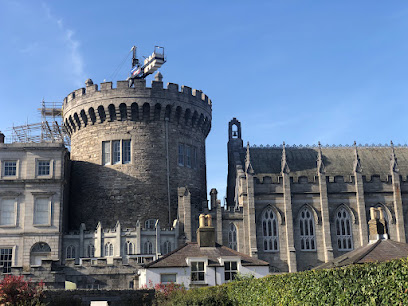
The Book of Kells Experience
Explore the enchanting Book of Kells at Trinity College Dublin, where history, artistry, and culture converge in a captivating experience.
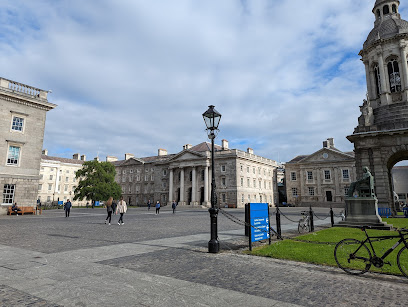
Trinity College Dublin
Explore the rich history and stunning architecture of Trinity College Dublin, home of the Book of Kells and a vibrant academic atmosphere.
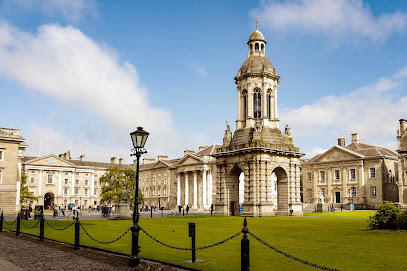
Oscar Wilde House
Immerse yourself in the legacy of Oscar Wilde at his historic house in Dublin, a cultural gem surrounded by beautiful gardens.
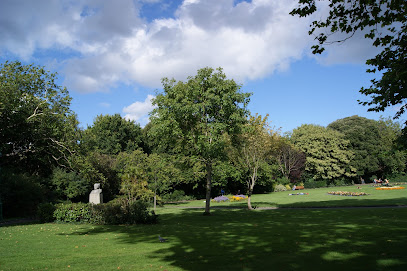
The Douglas Hyde Gallery
Explore contemporary art at The Douglas Hyde Gallery, nestled in the historic Trinity College Dublin, showcasing innovative exhibitions and engaging experiences.
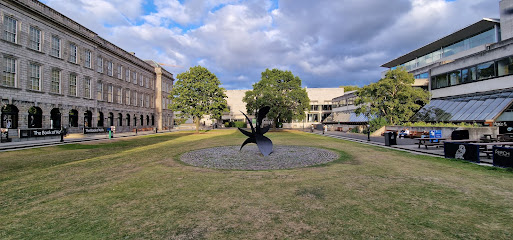
Trinity Long Room Hub
Discover the stunning Trinity Long Room Hub, a historic library in Dublin filled with rare books and rich literary heritage.
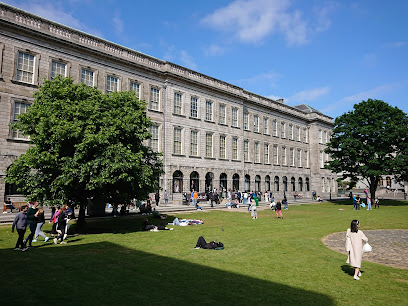
Museum Building (Geology, Geography and Civil Engineering)
Discover the architectural beauty and scientific treasures of the Museum Building at Trinity College, a must-see for every Dublin visitor.
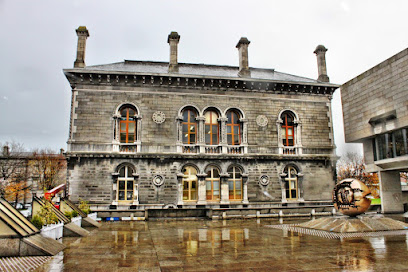
TCD Arts Building
Explore the TCD Arts Building in Dublin, where creativity meets history in a beautiful academic setting at Trinity College.
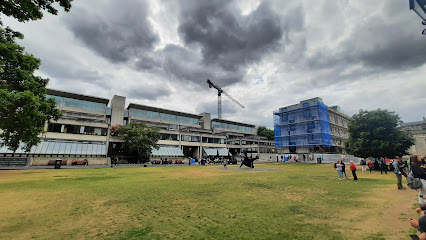
School of Histories and Humanities, Arts Building, Trinity College Dublin
Explore the School of Histories and Humanities at Trinity College Dublin, where Ireland's academic tradition meets rich cultural heritage.
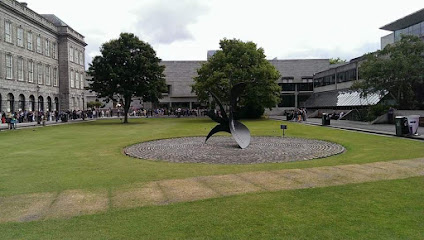
Ecological Museum at Trinity College
Explore biodiversity and ecological wonders at the Ecological Museum in Trinity College Dublin, a must-visit for nature lovers and curious travelers.
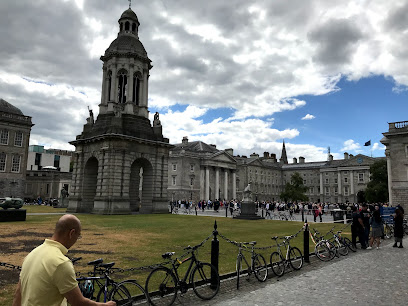
Unmissable attractions to see
St Stephen's Green
Discover the lush landscapes and rich history of St Stephen's Green, Dublin's premier urban park and a tranquil escape from city life.
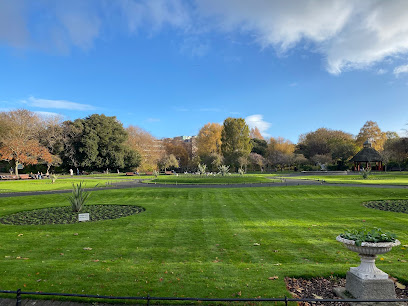
Dublin Castle
Explore Dublin Castle, an iconic historical landmark in Dublin, showcasing centuries of rich history and stunning architecture amidst beautiful gardens.
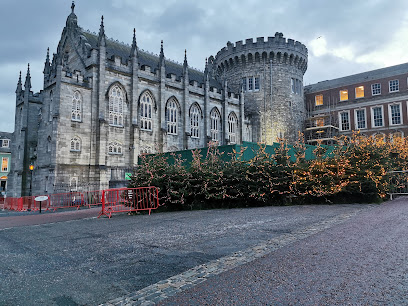
National Botanic Gardens
Explore the National Botanic Gardens in Dublin, a serene escape filled with stunning plant life and rich horticultural history, perfect for nature lovers.
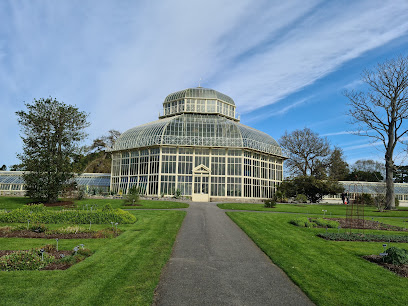
The Book of Kells Experience
Explore the legendary Book of Kells at Trinity College Dublin and immerse yourself in Ireland's rich literary and cultural heritage.
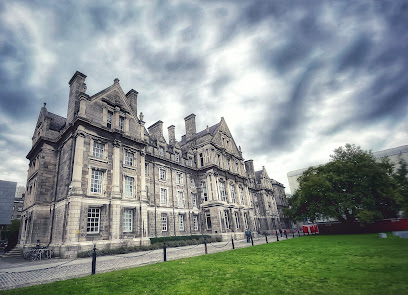
Molly Malone Statue
Discover Dublin's heritage at the iconic Molly Malone Statue, a bronze tribute to the city's legendary fishmonger and local folklore.
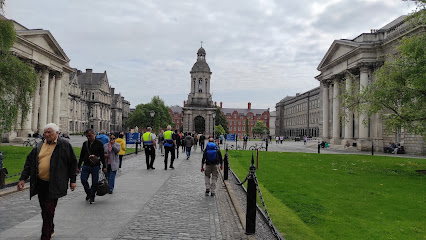
Dublinia
Explore Dublin's Viking and medieval history at Dublinia, an immersive museum that captivates visitors with interactive exhibits and stunning reconstructions.
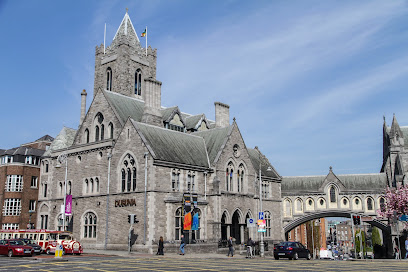
O'Connell Monument
Explore the O'Connell Monument, a magnificent tribute to Irish history and heritage, located on the vibrant O'Connell Street in Dublin.
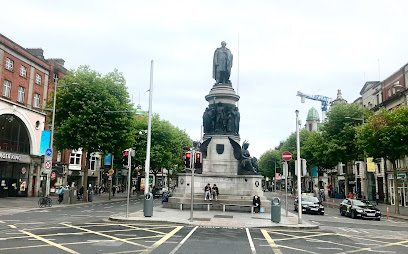
Oscar Wilde House
Discover the birthplace of Oscar Wilde in Dublin's historic Merrion Square, a captivating landmark celebrating the literary genius of Ireland's most famous playwright.
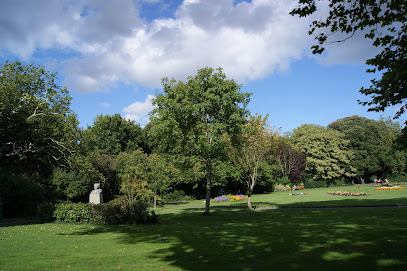
The Wishing Hand
Discover the magic of The Wishing Hand in Dublin, a unique tourist attraction filled with dreams, art, and enchanting experiences.
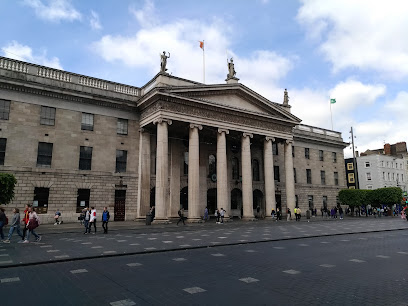
Wall of Love
Discover Dublin's Wall of Love, a vibrant mural celebrating affection in multiple languages, perfect for memorable photos and heartfelt reflections.
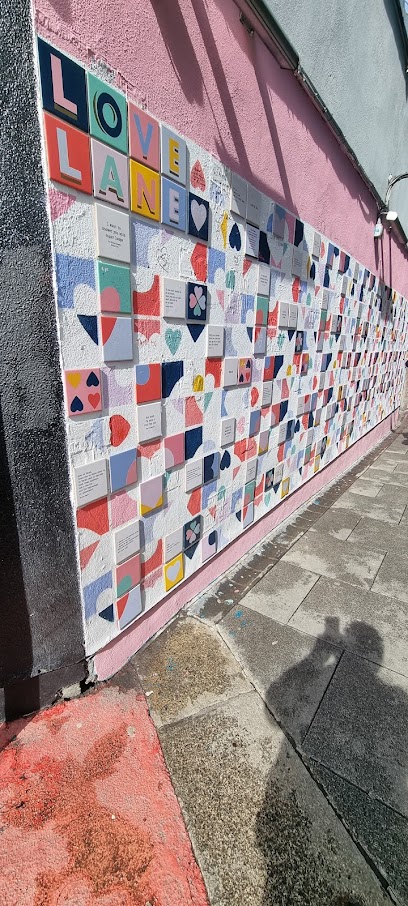
Essential places to dine
Dunne and Crescenzi
Experience authentic Italian flavors at Dunne and Crescenzi in Dublin – where culinary tradition meets modern dining.
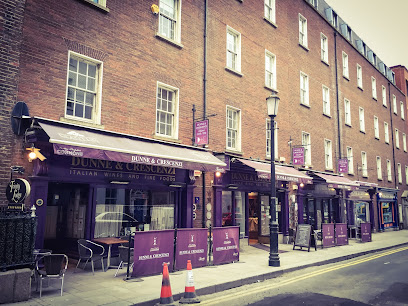
Marco Pierre White Steakhouse & Grill
Discover Dublin's premier steakhouse offering exceptional cuts and exquisite dining experiences in an elegant setting.
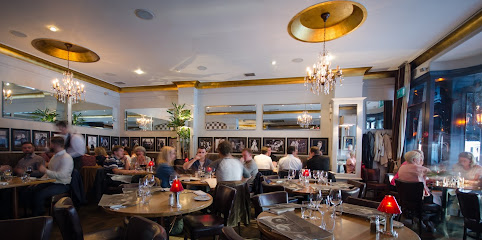
Pichet
Experience the best of modern French cuisine at Pichet - Dublin's premier bistro offering exquisite dishes and innovative cocktails.
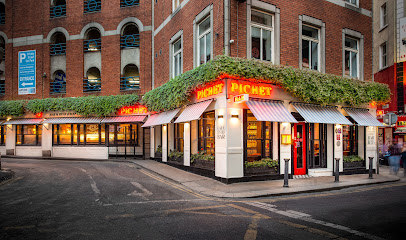
The Pig's Ear
Savor authentic Irish dishes at The Pig's Ear in Dublin – where tradition meets modern culinary artistry.
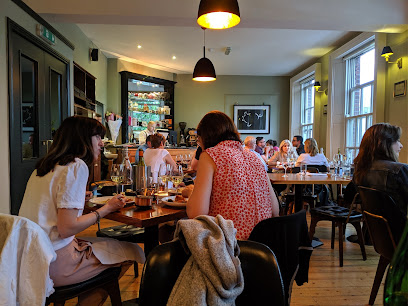
Courtyard Restaurant
Experience authentic Irish cuisine at the Courtyard Restaurant in Dublin's vibrant heart; savor tradition in every bite.
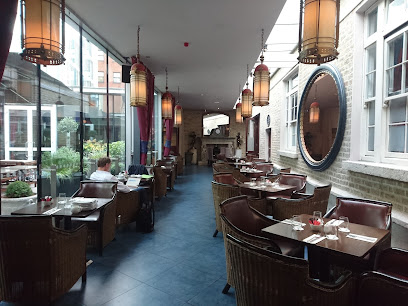
Kilkenny Café
Discover Kilkenny Café at Trinity College Dublin - where delightful flavors meet historical charm in every bite.
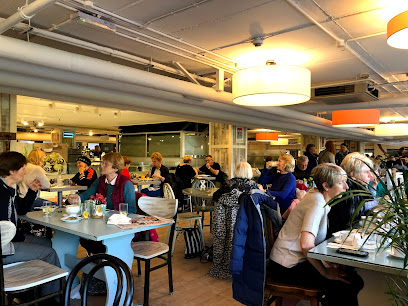
Aperitivo
Experience the best of Italian cuisine at Aperitivo in Dublin – where authentic flavors meet vibrant ambiance.
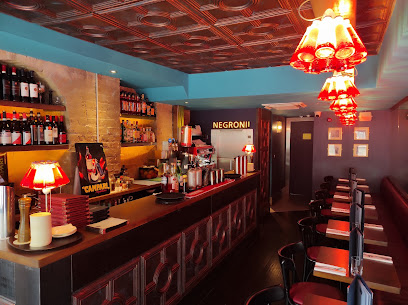
The Buttery
Experience authentic Irish cuisine at The Buttery - a cozy restaurant in Dublin known for its friendly service and budget-friendly prices.
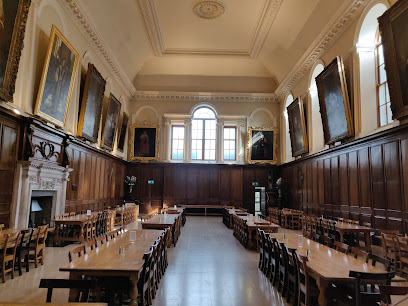
The 1592 Restaurant
Experience exquisite Irish cuisine at The 1592 Restaurant in Trinity College Dublin - where history meets culinary delight.
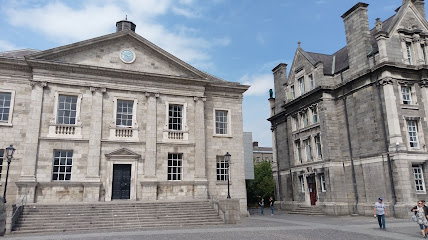
The East Dining Hall
Experience authentic Irish cuisine at The East Dining Hall in Dublin Southside - where tradition meets flavor.
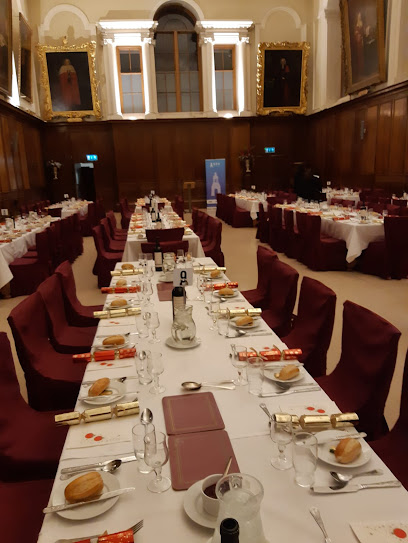
Markets, malls and hidden boutiques
Kilkenny Design
Explore Kilkenny Design in Dublin: Your go-to spot for authentic Irish goods, delightful café treats, and a taste of local culture.
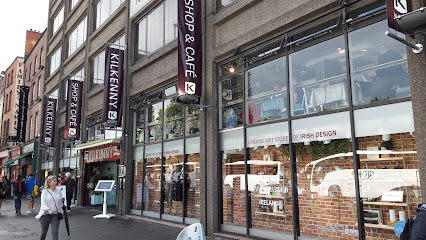
The Irish Store
Explore the essence of Ireland at The Irish Store, your destination for authentic Irish gifts, clothing, and local artisan treasures in the heart of Dublin.
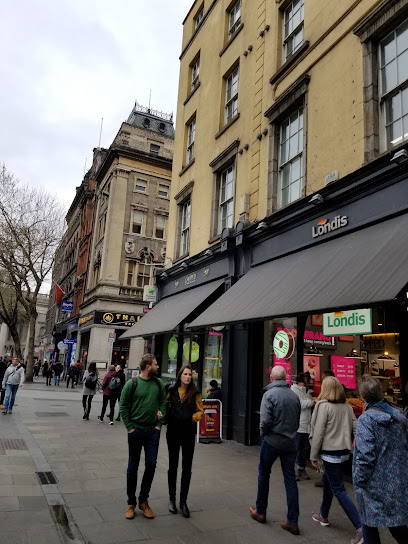
designist
Explore Designist, Dublin's innovative gift shop showcasing local artistry and unique finds, perfect for memorable souvenirs and special gifts.
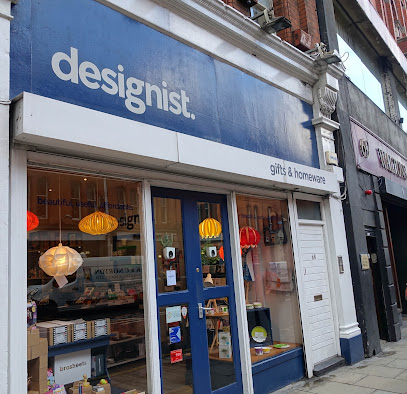
Irish Design Shop
Explore unique handcrafted gifts at the Irish Design Shop in Dublin, showcasing the best of Irish creativity and craftsmanship.

Padison & Yule
Discover unique and whimsical gifts at Padison & Yule, a must-visit shop in the heart of Dublin, celebrating Ireland's creativity and charm.
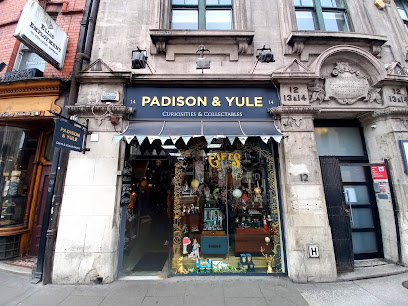
Magne
Explore Magne, a unique boutique gift shop in Temple Bar, Dublin, offering a curated selection of local crafts and souvenirs that embody the spirit of Ireland.
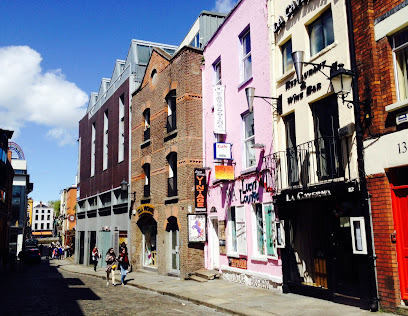
Trinity Gift Shop
Discover unique Irish gifts at Trinity Gift Shop, located in the historic Trinity College Dublin, a perfect stop for tourists seeking memorable souvenirs.
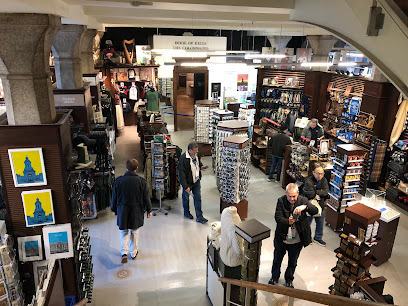
EPIC Museum Gift Shop
Discover unique Irish souvenirs at the EPIC Museum Gift Shop, a cultural gem in Dublin offering locally crafted treasures.
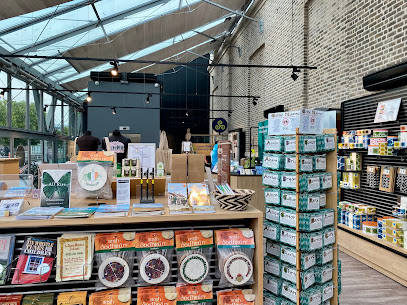
House of Names
Discover your Irish heritage at the House of Names, where personalized family crests and unique gifts bring history to life in the heart of Dublin.
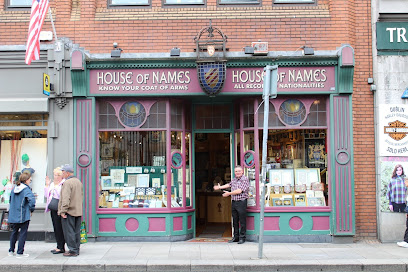
The House of Names
Explore your heritage at The House of Names, a unique gift shop in Dublin offering personalized family crests and Irish heritage gifts.
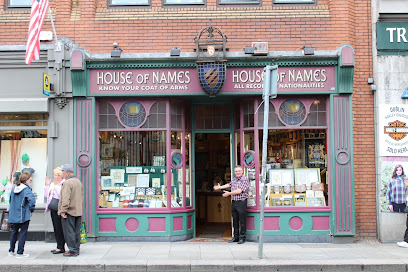
Essential bars & hidden hideouts
The Bank on College Green
Experience the charm of Dublin at The Bank on College Green, where history meets modern dining in a stunning gastropub setting.
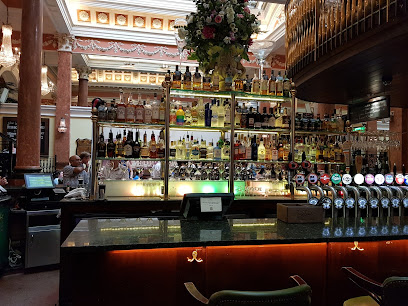
The Palace Bar
Discover the charm of traditional Irish pub culture at The Palace Bar in Dublin's vibrant Temple Bar district, a must-visit for tourists.
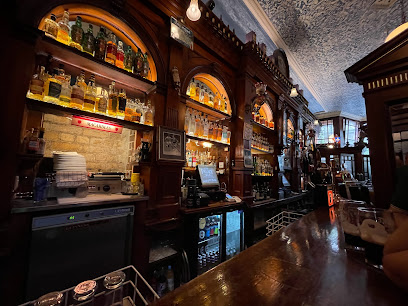
Trinity Bar & Venue
Experience Dublin's vibrant nightlife and culinary delights at Trinity Bar & Venue, the perfect spot for tourists seeking great food and drinks.
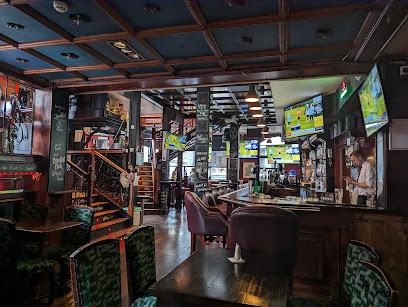
Doyle's
Experience the essence of Dublin's pub culture at Doyle's - a lively haven for food, drinks, and unforgettable memories.
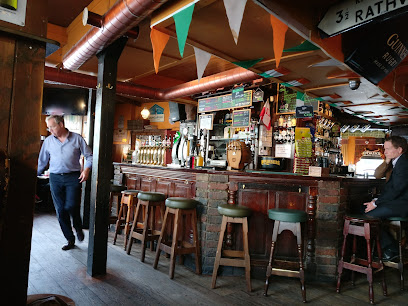
Tapped Late Bar
Discover Tapped Late Bar in Dublin - a lively nightlife destination featuring an extensive drink selection and vibrant atmosphere.
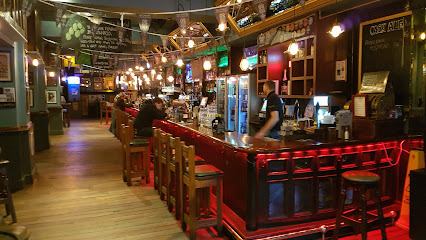
Peadar Kearney's Pub
Discover the heart of Irish culture at Peadar Kearney's Pub, where live music meets authentic cuisine in the vibrant Temple Bar district.

O'Neills Victorian Pub & Townhouse
Discover the vibrant spirit of Dublin at O'Neills Victorian Pub & Townhouse, where traditional Irish cuisine meets lively entertainment.
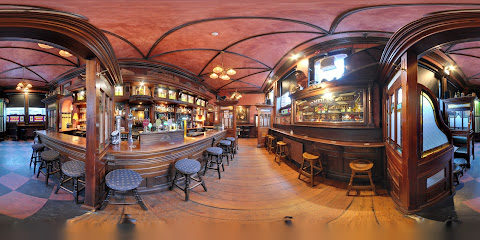
The Blind Pig Speakeasy
Experience the charm of the 1920s at The Blind Pig Speakeasy, Dublin's premier cocktail bar known for its innovative drinks and vibrant atmosphere.
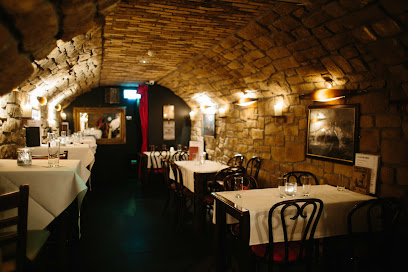
The Big Romance
Discover the essence of Dublin's nightlife at The Big Romance, where cocktails, live music, and a vibrant atmosphere await.
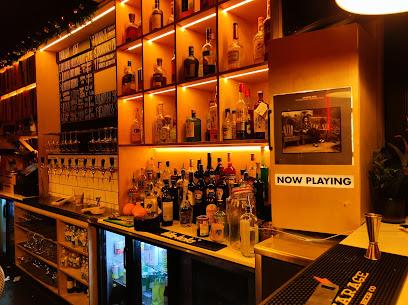
Pavilion Bar
Discover the vibrant Pavilion Bar in Dublin, where affordable drinks and a lively atmosphere await in the heart of the city.
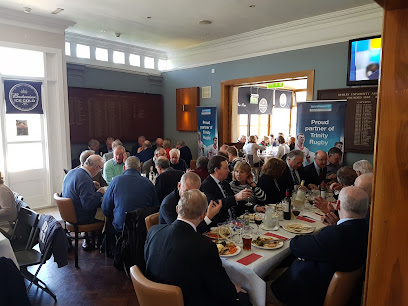
Local Phrases
-
- HelloDia dhuit
[dee-ah gwit] - GoodbyeSlán
[slawn] - YesTá
[taw] - NoNíl
[neel] - Please/You're welcomeLe do thoil/Tá fáilte romhat
[leh duh hull/taw fawl-cheh row-at] - Thank youGo raibh maith agat
[guh row mah og-ut] - Excuse me/SorryTá brón orm
[taw brohn or-im] - How are you?Conas atá tú?
[kun-us ah-taw too] - Fine. And you?Tá mé go maith. Agus tú?
[taw may guh mah. ah-gus too] - Do you speak English?An labhraíonn tú Béarla?
[ahn low-reen too bay-er-la] - I don't understandNí thuigim
[nee hug-im]
- HelloDia dhuit
-
- I'd like to see the menu, pleaseBa mhaith liom an mianu a fheiceáil, le do thoil
[ba wah lyum on mee-an-oo ah eck-ah-il, leh duh hull] - I don't eat meatNí ithim feoil
[nee ih-im fuh-il] - Cheers!Sláinte!
[slawn-cheh] - I would like to pay, pleaseBa mhaith liom íoc, le do thoil
[ba wah lyum ee-uk, leh duh hull]
- I'd like to see the menu, pleaseBa mhaith liom an mianu a fheiceáil, le do thoil
-
- Help!Cabhair!
[coh-er] - Go away!Imigh uaim!
[ih-mee ooh-um] - Call the Police!Glan an Garda!
[glawn on gar-dah] - Call a doctor!Glan dochtúir!
[glawn duck-too-ir] - I'm lostTáim caillte
[taw-im kahl-cheh] - I'm illTáim tinn
[taw-im chinn]
- Help!Cabhair!
-
- I'd like to buy...Ba mhaith liom ceannach...
[ba wah lyum kyah-nukh] - I'm just lookingNíl mé ach ag breathnú
[neel may ahk eg brakh-noo] - How much is it?Cé mhéad atá air?
[kay vayd ah-taw air] - That's too expensiveTá sé ró-dháiríre
[taw shay row-gaw-ree-reh] - Can you lower the price?An féidir leat an praghas a laghdú?
[ahn fay-dir lat on prah-gus ah lay-goo]
- I'd like to buy...Ba mhaith liom ceannach...
-
- What time is it?Cén t-am é?
[kayn tahm ay] - It's one o'clockTá sé a haon a chlog
[taw shay ah hayn ah khlog] - Half past (10)Leathuair tar éis a deich
[lah-hoo-er tar aysh ah deh] - MorningMaidin
[mah-deen] - AfternoonTráthnóna
[traw-noh-nah] - EveningTráthnóna
[traw-noh-nah] - YesterdayInné
[in-ay] - TodayInniu
[in-yoo] - TomorrowAmárach
[ah-maw-rahk] - 1a haon
[ah hayn] - 2a dó
[ah doh] - 3a trí
[ah tree] - 4a ceathair
[ah kah-hir] - 5a cúig
[ah koo-ig] - 6a sé
[ah shay] - 7a seacht
[ah shakht] - 8a hocht
[ah hukht] - 9a naoi
[ah nee] - 10a deich
[ah deh]
- What time is it?Cén t-am é?
-
- Where's a/the...?Cá bhfuil an...?
[kaw wil on] - What's the address?Cad é an seoladh?
[kod ay on shoh-lah] - Can you show me (on the map)?An bhféadfá é a léiriú dom (ar an léarscáil)?
[ahn vayd-faw ay ah lay-ree-oo dum (er on lay-ers-kawl)] - When's the next (bus)?Cathain a bheidh an chéad (bus)?
[kah-hin ah veh un khayd (bus)] - A ticket (to ....)Ticéad (go dtí ....)
[tick-ade (guh dee)]
- Where's a/the...?Cá bhfuil an...?
History of Trinity College
-
Trinity College Dublin was founded in 1592 by Queen Elizabeth I as the 'Mother of a University' in Ireland. Its establishment marked the beginning of higher education in Ireland and was intended to promote Protestant learning. The college's charter was granted amidst the backdrop of the Elizabethan conquest of Ireland, reflecting the political tensions of the time.
-
The college's iconic architecture, including the Old Library and the Campanile, reflects various styles from the 17th century onwards. The Long Room of the Old Library, completed in 1732, is renowned for its stunning wooden barrel-vaulted ceiling and houses over 200,000 of the college's oldest books, showcasing the institution's commitment to scholarship and preservation of knowledge.
-
Throughout the 18th and 19th centuries, Trinity College became a significant center for intellectual thought and cultural development in Ireland. The college produced many notable alumni, including Jonathan Swift, Samuel Beckett, and Oscar Wilde, who contributed to the literary and cultural landscape of Dublin and beyond.
-
Trinity College historically barred Catholics from attending until the Catholic Emancipation Act of 1829. This act allowed greater access to education and led to an influx of Catholic students, diversifying the college's demographic and enriching its academic environment. The tensions surrounding this change mirrored the broader struggle for civil rights in Ireland.
-
In the 20th century, Trinity College experienced significant changes, including the introduction of new courses and a shift towards a more inclusive educational approach. The college also played a crucial role during the Irish War of Independence and the subsequent Civil War, with many of its students and faculty involved in the movements that shaped modern Ireland.
-
Today, Trinity College is recognized as one of the leading universities in the world, attracting students from across the globe. Its campus remains a vibrant cultural hub in Dublin, hosting numerous events, exhibitions, and festivals that celebrate both its rich history and contemporary academic achievements. The college's commitment to research and innovation continues to impact Ireland's cultural and intellectual landscape.
Trinity College Essentials
-
Trinity College is centrally located in Dublin, making it easily accessible from various neighborhoods. If you're coming from Dublin Airport, the Airlink Express bus service (routes 747 and 757) can take you to O'Connell Street, from where it's a short walk to the college. Alternatively, you can take a taxi or use rideshare services, which typically take about 30 minutes depending on traffic. From other neighborhoods, Dublin’s extensive bus network, Luas tram system, and DART train services make it convenient to reach Trinity College.
-
Trinity College itself is pedestrian-friendly, with most areas easily accessible on foot. Dublin’s public transport system includes buses, trams (Luas), and trains (DART), which can take you to nearby attractions. You can purchase a Leap Card for discounted fares on public transport. Bicycles are also a popular way to get around; Dublin has a bike-sharing system called Dublinbikes, with several stations near Trinity College.
-
Trinity College and its surrounding areas are generally safe for tourists. However, as in any city, it's wise to remain vigilant. Specific areas in Dublin, such as parts of O'Connell Street and certain areas around Temple Bar, may experience higher crime rates, particularly pickpocketing. Always keep your belongings secure and be cautious when approached by strangers asking for money or assistance.
-
In case of an emergency, dial 999 for police, fire, or medical assistance in Ireland. Familiarize yourself with the nearest hospitals; St. James's Hospital is a major facility not far from the city center. Always carry a copy of your passport and important information. It’s also advisable to have travel insurance that covers emergencies.
-
Fashion: Do wear comfortable shoes for walking, especially since Trinity's cobblestone paths can be uneven. Don't wear overly casual attire if you plan to dine in upscale restaurants nearby. Religion: Do respect the quiet atmosphere in the College's chapel. Don't take photographs where prohibited. Public Transport: Do validate your ticket before boarding. Don't engage in loud conversations. Greetings: Do greet locals with a friendly smile. Don't be offended if they seem reserved initially. Eating & Drinking: Do enjoy traditional Irish dishes at nearby pubs. Don't drink in public places outside designated areas.
-
To experience Trinity College like a local, consider joining a guided tour to gain insights into its history and architecture. Visit the Book of Kells exhibition early in the morning to avoid crowds. Explore the nearby neighborhoods, such as Temple Bar for its vibrant culture and local art, and Grafton Street for shopping. Don't miss the chance to relax in St. Stephen's Green, just a short walk away, where locals often gather.
Trending Landmarks in Trinity College
-
Dublin Castle
-
The Book of Kells Experience
-
Trinity College Dublin
-
Oscar Wilde House
-
The Douglas Hyde Gallery
-
Trinity Long Room Hub
-
Museum Building (Geology, Geography and Civil Engineering)
-
TCD Arts Building
-
School of Histories and Humanities, Arts Building, Trinity College Dublin
-
Ecological Museum at Trinity College
Nearby Cities to Trinity College
-
Things To Do in Bray
-
Things To Do in Drogheda
-
Things To Do in Kilkenny
-
Things To Do in Athlone
-
Things To Do in Wexford
-
Things To Do in Port Erin
-
Things To Do in Port St Mary
-
Things To Do in Castletown
-
Things To Do in Waterford
-
Things To Do in Ballasalla
-
Things To Do in Belfast
-
Things To Do in Peel
-
Things To Do in Douglas
-
Things To Do in Onchan
-
Things To Do in Kirk Michael












